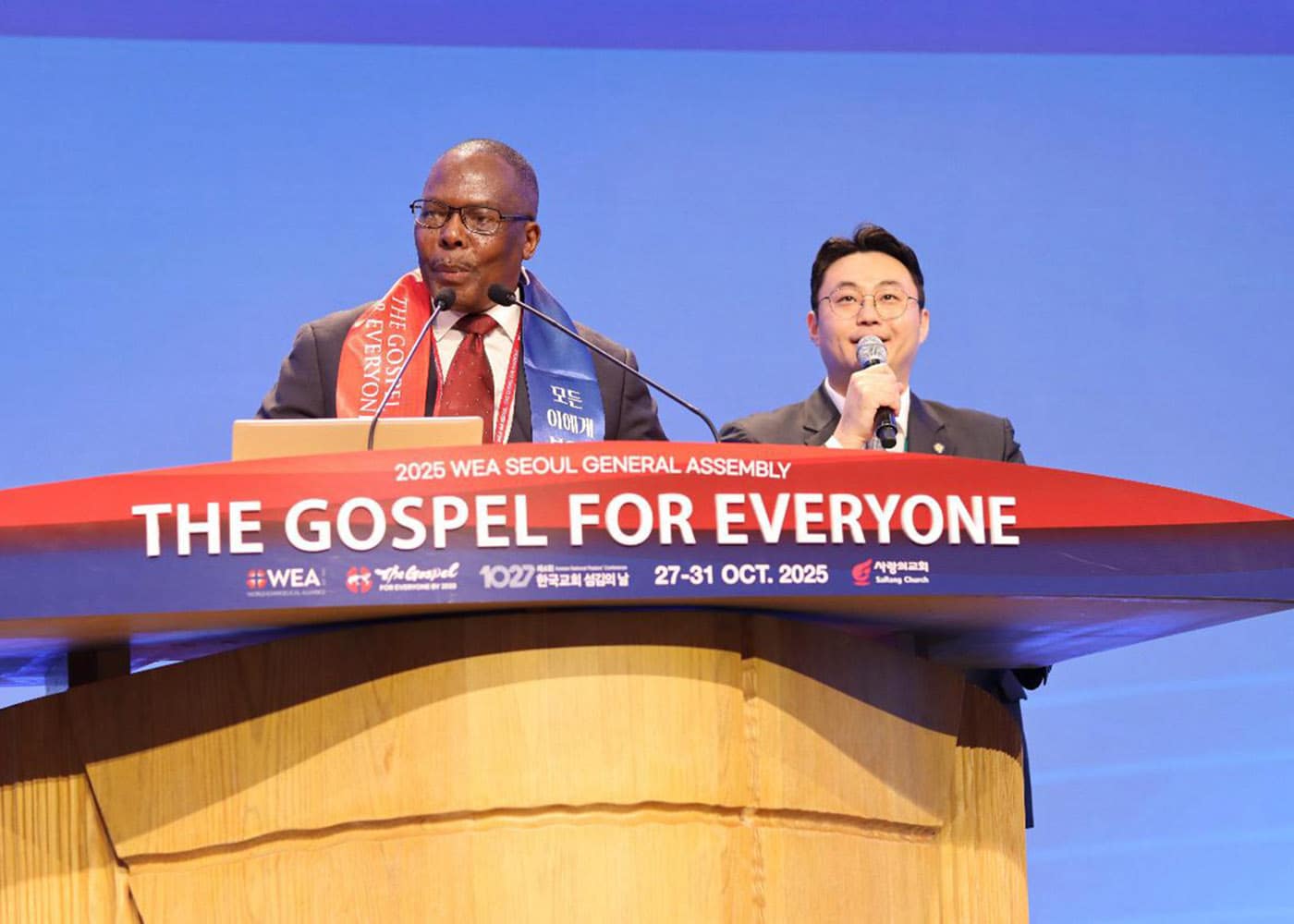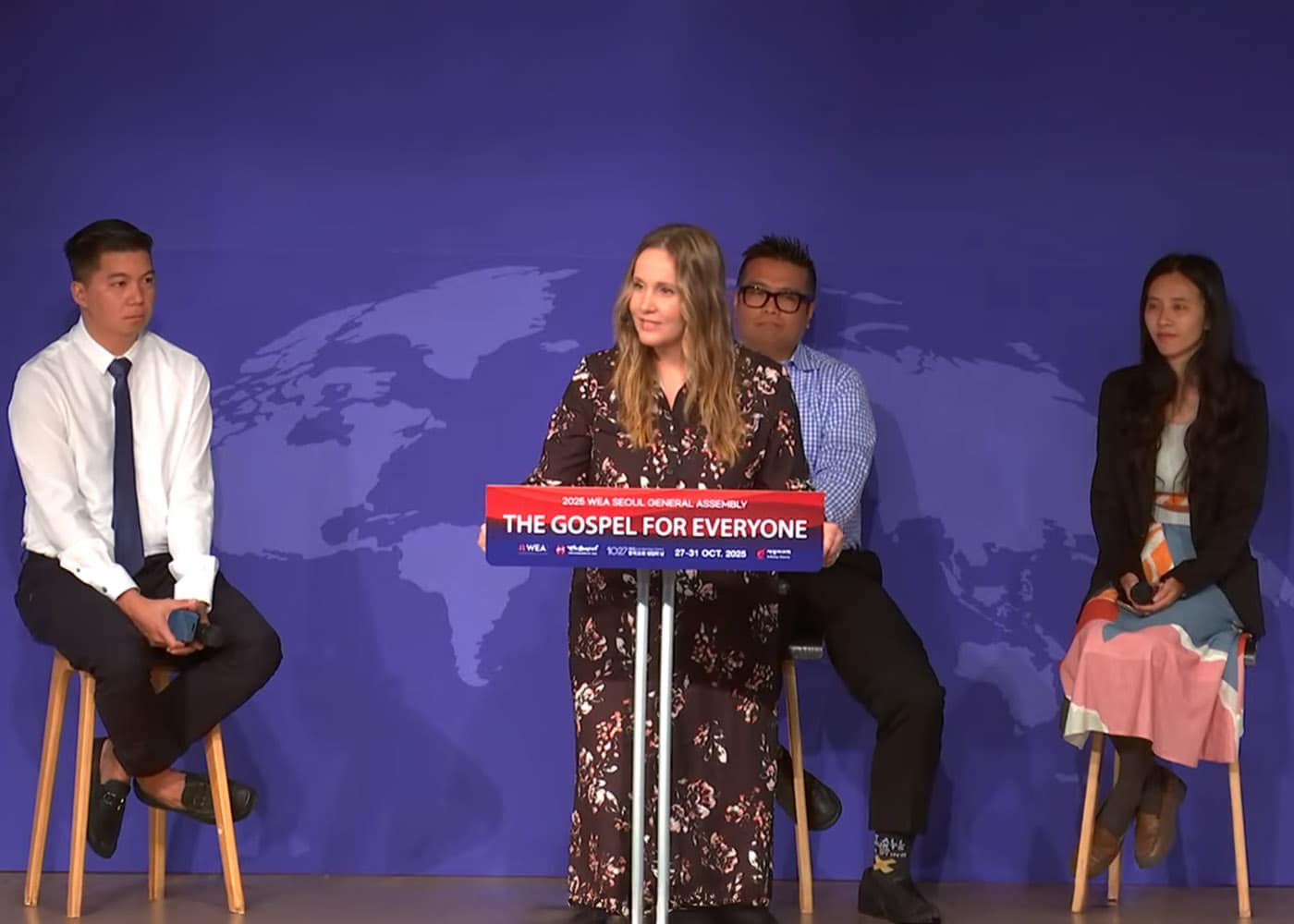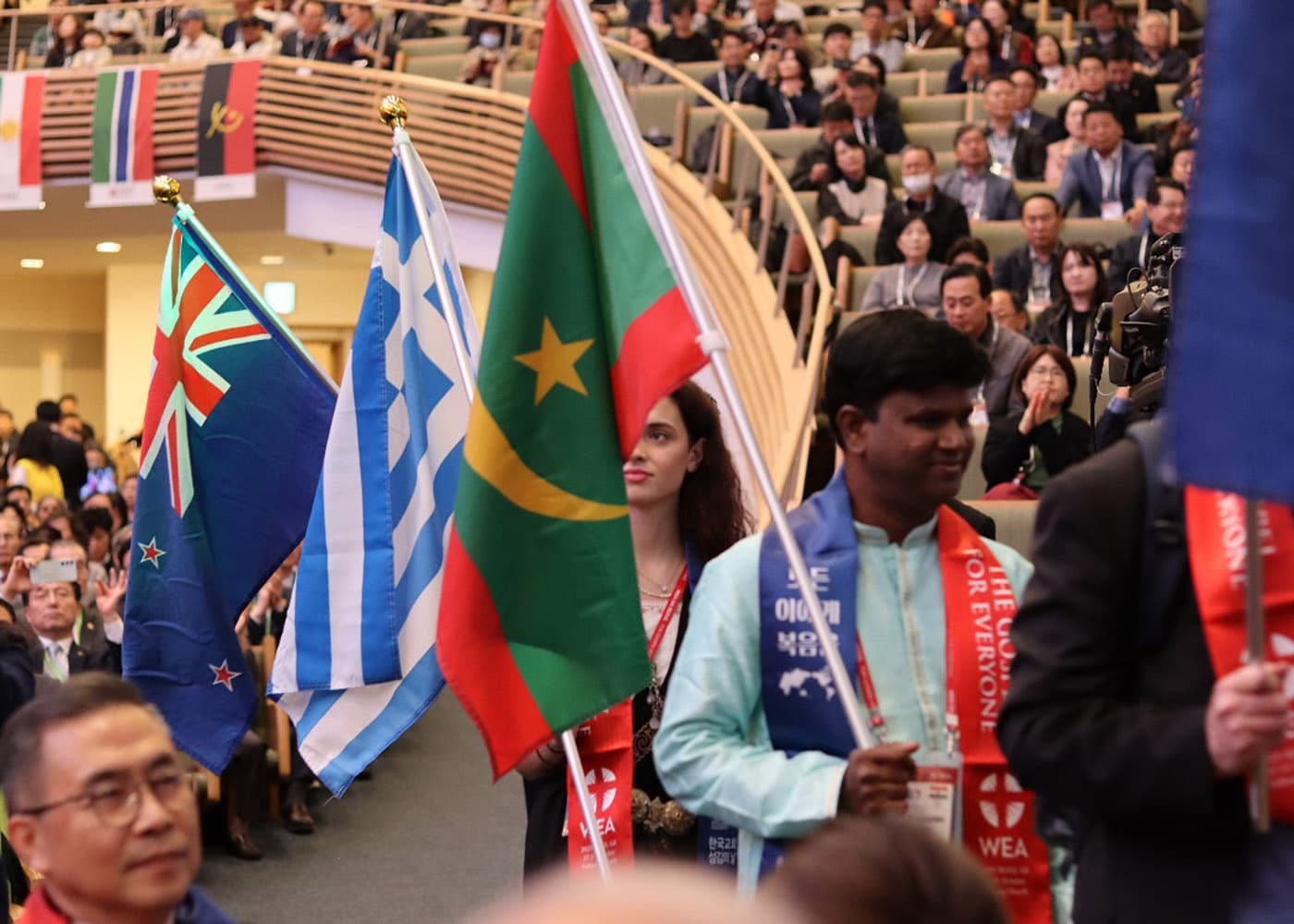simultaneously in 63 of Bangladesh’s 64 districts. Whilst three
people were killed and 150 were injured, the most devastating
element of this attack is not the damage it caused, but the message
it left. That message is that Islamic militants are willing and able
to co-ordinate and perpetrate terror nationwide.
The group that has been blamed for the bombings,
Jamaat-ul-Mujahideen, threatened to strike again unless Bangladesh
introduces Islamic law. According to Pakistan’s Daily Times,
Jamaat-ul-Mujahideen subsequently declared, “Everybody is the enemy
of Islam who wants to launch democracy as an institutional form.
Therefore we invite the ruling party and also the opposition to
initiate the rule of Islam within a short time in Bangladesh.” (Link 1)
THE THREAT TO TARGET CHRISTIAN LEADERS
Five days later, on 22 August, Bangladesh’s leading national Bengali
daily newspaper, the “Daily Ittafaq”, published on its front page
the news that the Intelligence Department had informed the
government that Islamic militants are planning to attack the largest
non-Muslim religious centres in Dhaka – the Dhakashari Hindu Temple,
the Tejgaon Catholic Church, and the Kamlapur Buddhist Monastery.
According to the intelligence report, militants also plan to kill
local and foreign non-Muslim leaders, missionaries, priests and
humanitarian workers. Basically anyone who is preaching religion
(especially Christianity) is to be targeted for violence or killing
for the purpose of discrediting the government of Bangladesh in the
West.
After a meeting with intelligence agencies the Home Ministry
requested that police step up security around non-Muslims religious
establishments and leaders.
Under the leadership of the National Christian Fellowship of
Bangladesh, a coalition of leaders from Christian churches,
institutions and NGOs wrote a memorandum to the Prime Minister which
was printed in Bengali and English language national newspapers.
In “An Appeal to Her Excellency Begum Khaleda Zia” published in the
Observer on 4 September, the Church leaders reiterated their desire
to serve the nation through education, health-care, relief and
rehabilitation, poverty alleviation, and the fostering of spiritual
values. They then expressed their concern over both national
security and the security of the threatened religious minorities,
noting that preachers of Christianity have been singled out to be
targeted on account of the effect this would have on Western
governments.
The church leaders then humbly requested that the government take
every possible step to remove the deep-rooted causes of terrorism.
The memorandum was signed by Rev. Theotonius Gomes, the Secretary
General of the Catholics Bishops’ Conference of Bangldesh; the Rt.
Rev. Nibaran Das, Bishop of the Methodist Church of Banglades; Rev.
Asam Kain, Chairman of the Bangladesh Assemblies of God; Mr Subodh
Adhikary, General Secretary of the National Council of Churches of
Bangladesh; Rt. Rev. Michael Baroi, Moderator of the Church of
Bangladesh; Rev. Robert Sarkar, the General Secretary of the
Bangladesh Baptist Church Sangha; Mr Leor P. Sarkar, the General
Secretary of the Bangladesh Baptist Church Fellowship; and Mr Dennis
D. Datta, General Secretary of the National Christian Fellowship of
Bangladesh.
LOCAL MILITANTS ARISE ON THE STRENGTH OF FOREIGN FUNDS
Islamic zeal erupted in Bangladesh in October 2001 objecting to the
presence of American and allied military forces in Pakistan for the
purpose of bombing Afghanistan. The feelings of Islamic rage,
identification and solidarity were so strong that Bangladesh’s
October 2001 general elections yielded a huge swing away from the
ruling secular Awami League Party in favour of pro-Pakistan,
pro-Muslim and militant Islamist parties. This is especially tragic
when we consider how much blood was shed for Bangladesh to win
independence from Pakistan and the right to secular government based
on Bengali rather than Islamic culture.
Since October 2001, local Islamic militant groups have grown in
number, membership and organisation. Madrassas have proliferated
across the country to the extent that there are now more than
64,000, up from 4,000 in 1986. Most have arisen in the last decade
and are without any government oversight. Meanwhile, persecution of
religious minorities has intensified.
Bangladeshi intelligence agencies have come to believe that not only
are the militants well established and well co-ordinated, but they
are also well funded courtesy of foreign Islamic NGOs that channel
funds from the Middle East to local militant groups. Nearly a dozen
foreign Islamic NGOs have now been placed on a watch list.
A 7 September article by David Montero for the Christian Science
Monitor gives an excellent overview of “How extremism came to
Bangladesh”. (Link 2)
Montero writes, “In the aftermath of the [17 August bomb] attacks,
Bangladesh is confronting a realization long suspected but
consistently overlooked: Islamist militant groups have taken firm
root here, demonstrating a widespread, highly coordinated, and
well-funded network. The government, after consistently denying the
threat, recently blamed Jama’atul Mujahedin Bangladesh (JMB) for the
attack.”
Montero notes that Jama’atul Mujahedin was banned in February after
members confessed to bombing ‘un-Islamic’ targets, including theatre
shows and the offices of nongovernmental organizations (NGOs).
According to Montero, the spiritual head of Jama’atul Mujahedin,
Abdur Rahman, told the media last year that he admired the Taliban
and had traveled to Afghanistan. “He claimed his organization had
been operating underground since 1998, with the aim of founding an
Islamic state. His network was active across the country, he said,
with 10,000 trained full-time operatives, and 100,000 part-time
activists, funded with a payroll of more than $10,000 a month, a
huge sum by Bangladeshi standards.”
Montero continues, “Another JMB leader, Muhammad Asadullah Al-Galib,
who was arrested after the February crackdown, is alleged by
intelligence agencies to have received large funding from the
Revival of Islamic Heritage Society (RIHS), a Kuwait-based
organization. In 2002, the US State Department blacklisted some RIHS
offices, citing their support of Osama bin Laden and Al Qaeda. RIHS
and Galib’s organization have reportedly constructed over 1,000
mosques across Bangladesh and 10 madrassahs.”
Writing from Dhaka for New Kerala (India), Farid Ahmed states, “The
Kuwait-based Revival of the Islamic Heritage Society is on top of
the list of suspect organisations and the government is going to ask
it to close its offices in the country. The other organisations put
under close watch include the Rabita Al Alam Al Islami, Society of
Social Reforms, Qatar Charitable Society, Al Muntada Al Islami,
Islamic Relief Agency, Al Forkan Foundation, International Relief
Organisation, Kuwait Joint Relief Committee and the Muslim Aid
Bangladesh. All these organisations are based in different Middle
East countries and have been active in Bangladesh for years.”
According to Ahmed, intelligence has revealed that more than 100
foreigners, who traveled from various Middle Eastern and African
countries and entered with tourist visas, have been working in these
Islamic NGOs illegally. (Link 3)
– Elizabeth Kendal< br />
[email protected]Links
1) Banned group calls for Islamic rule in Bangladesh
Jamaat-ul-Mujahideen threatens to strike again unless the country
resorts to Islamic law. DHAKA, 24 August 2005
2) How extremism came to Bangladesh
Foreign funding and bitter politics may have played a role in the
recent bombings. By David Montero, 7 September 2005
http://www.csmonitor.com/2005/0907/p06s01-wosc.html
3) Foreign NGOs funding militancy in Bangladesh: intelligence
By Farid Ahmed, Dhaka, 8 September 2005
http://www.newkerala.com/news.php?action=fullnews&id=20898
============================================
**WEA Religious Liberty News & Analysis**
<[email protected]>
============================================
Please feel free to pass this along to others giving attribution to:
“World Evangelical Alliance – Religious Liberty News & Analysis.”
To subscribe for Religious Liberty News & Analysis, please send
your request to Elizabeth Kendal <[email protected]>.
Please include your name and country or state of residence.
For more information on the World Evangelical Alliance, please see:
<http://www.WorldEvangelicalAlliance.com>,
For the Religious Liberty Commission of the WEA, see:
<http://www.WorldEvangelicalAlliance.com/commissions/rlc.htm>.
All WEA RLC material is archived at <http://www.ea.org.au/rlc>.
PRAYER: For those of you who would like more detailed information on
situations for prayer and intercession, we recommend that you
subscribe to the WEA Religious Liberty Prayer List. Each week a
different nation or situation is highlighted. To subscribe, send an
empty e-mail to <[email protected]> with any or no subject.
Advocates International <http://www.advocatesinternational.org>
serves as the legal and judicial advisor to the RLC. Advocates
International links many Christian lawyers and judges around the
world and has been involved in religious liberty issues for many
years.
The Religious Liberty News & Analysis mailing list provides reports
on the state of religious liberty and persecution around the world
with those with a special interest in the field. Most members are
involved in church-based religious liberty advocacy, academic
research, missions leadership, creative-access missions, religious
media, or have prayer networks supporting these groups, although
anyone is welcome to join. Postings average one or two per
week. Information shared does not necessarily reflect the opinion
of World Evangelical Alliance, or of the WEA Religious Liberty
Commission.





Stay Connected